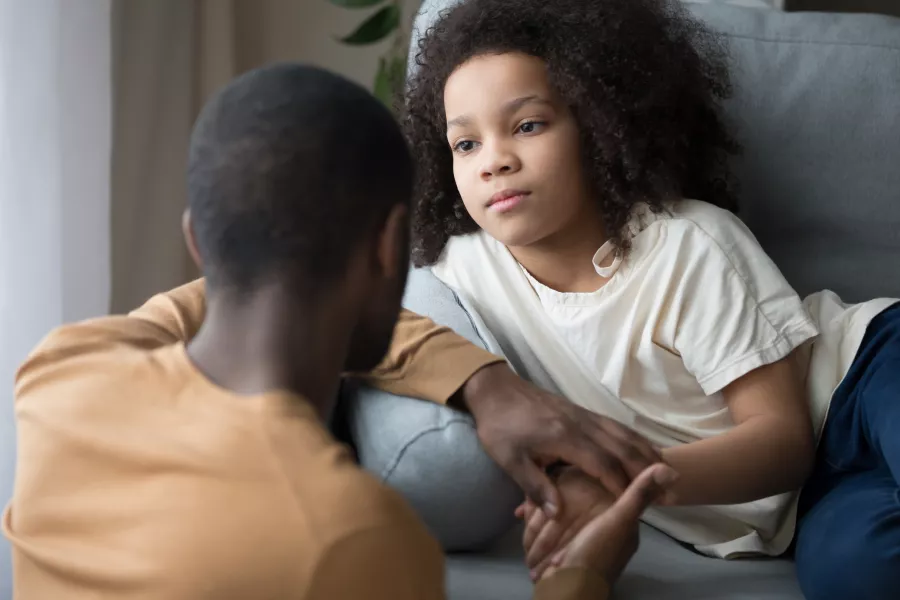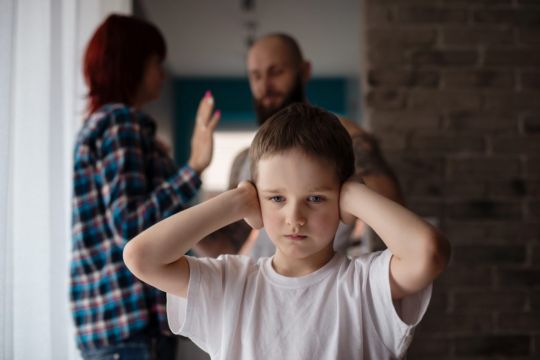Rising family stress as a result of the pandemic, topped off with the pressure of the festive season, means more children than ever are being exposed to the damaging effects of parental conflict, according to family support experts.
Research shows children who see and/or hear prolonged conflict between their parents are at risk of emotional and behavioural damage, and the resulting poor concentration, depression and worry about the state of their parents’ relationship can lead to lower achievement at school, say relationship support charity Tavistock Relationships.
In a bid to help children exposed to intense and damaging rows between their parents, Tavistock Relationships, together with other family support organisations, is supporting the Sort It Out campaign, which aims to make relationship support available and free to all parents in conflict, as well as making assessment for parental conflict standard for children in mental health services and at school.
Many new mothers say how uncomfortable they feel no longer bringing money into the household – and this can result in rows at this time of year. In fact, money is one of the top five causes of couple conflict https://t.co/VbbjdmHEAT pic.twitter.com/2Fcu4e42fE
— Tavistock Relationships (@TaviRelations) December 18, 2020
Advertisement
“Unresolved arguments between parents can have a damaging impact on relationships – and on children,” says Kate Thompson, head of parenting services at Tavistock Relationships.
“Parents provide a blueprint, a model of being a couple, for their children. If the model is overloaded with unresolved conflict, chances are aspects of this will haunt the forming of children’s own relationships, from playground friendships to choosing their own partner.
“Lockdown has been a new source of pressure for families, and conflict in the home has risen, as have children being exposed to their parents’ fights.”
We are backing the #SortItOut Campaign which calls for free support for parents locked in conflict - led by @CouplesAPPG and supported by many children’s and mental health charities, organisations and media. pic.twitter.com/TGOiaGawSS
— Relate (@Relate_charity) December 9, 2020
Advertisement
And Aidan Jones chief executive of Relate, which is also backing the campaign, adds: “We know from research and Relate’s own counselling experience that high levels of parental conflict can be hugely damaging for children’s mental health, behaviour and outcomes in life. This remains the case whether the parents are together or apart.
“When parents separate, maintaining a positive relationship and reducing animosity is vital for any children involved. The reality is that many parents could do with some extra support to achieve this, which is why Relate is supporting the #SortItOut campaign.”
Tavistock Relationships points out that difficult family relationships are consistently in the top three reasons why children contact Childline and are seen by mental health services. Here the charity outlines five ways to protect children from parental conflict…
1. Communicate clearly with your partner/ex-partner

Misunderstandings or assumptions about what a partner or ex-partner is thinking are a common starting point for couple conflict, says Thompson, who explains that recognising stressors and avoiding having an important conversation when exhausted or anxious is a good idea.
Heightening emotion or shutting down are often resorted to by couples to try to get the message through to their partner that they’re hurt, she says.
“Setting aside time to check-in with each other can help maintain feelings of closeness. It can’t make the ‘bad stuff’ go away, but allows couples to handle difficulties with a more hopeful state of mind,” she points out.
2. Talk to your child
Many parents are convinced they know what their children are thinking, often forgetting how much they held back from talking to their own parents when they were young.
Working from a premise of not knowing and being curious about how children are dealing with the hurdles in their lives, however big or small, will allow them to feel central to their parents, help build self-esteem and a secure sense of their own identity, says Thompson, who stresses that this open communication becomes even more important when parents are separated.
“Divorce can leave couples facing change in too many spheres of their lives, so it’s difficult to retain a sense of how hard it is for their children,” she says. “Split parents, overwhelmed with sadness at the end of their relationship, can leave children feeling split in two themselves.
“In a time of heightened emotion and uncertainty, it’s more important than ever for parents to empathise with their children, putting their own fears to one side and offering a secure parental presence.”
3. Don’t speak ill of your co-parent

Whether parents are together or separated, children need to be shielded from conflict and not pulled to side with one parent over the other, stresses Thompson.
“Children often feel the urge to become a parent-figure themselves, thinking one parent needs protecting from the other,” she explains. “This fast-forward in terms of their development, placing them in the middle of an adult dynamic they don’t fully understand, can leave them with feelings of guilt and blame.”
4. Spare time for your relationship
Thompson says couples need to carve out time for their relationship so the whole family will benefit. “If a relationship is feeling good enough, children will benefit,” she stresses. “This may feel counter-intuitive for those who believe children should come first but, in caring for itself from time-to-time, the relationship is simultaneously safeguarding the whole family.”
5. Ask for help
When parents argue, they don't always see the hurt it causes their children. We're pleased to be supporting the #SortItOut campaign, which is calling for parents to get the support they need to reduce conflict https://t.co/jHg7emGAou #SeeItDifferently @CouplesAPPG @goodthingsfdn pic.twitter.com/AXIP0aYJNS
— OnePlusOne (@OnePlusOne_) November 23, 2020
Whether people need support to get a relationship back on track, to split up without too much acrimony or to co-parent more effectively, seeking professional help to better understand themselves and manage difficult emotions will free a couple to enjoy their relationship and support their children, promises Thompson.
As well as Tavistock Relationships and Relate, other organisations that offer help to parents in conflict are Marriage Care, One Plus One, National Family Mediation, Parenting Apart Programme, Family Lives, and Soul Mates Academy Foundation.







